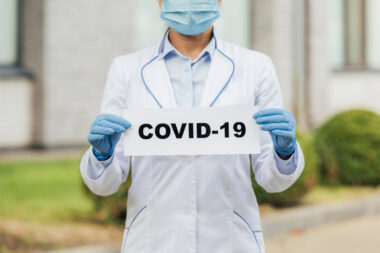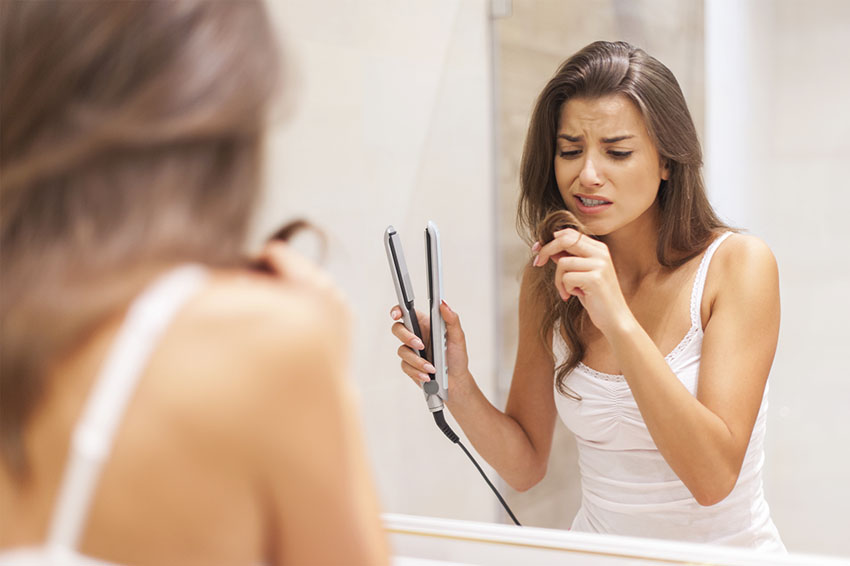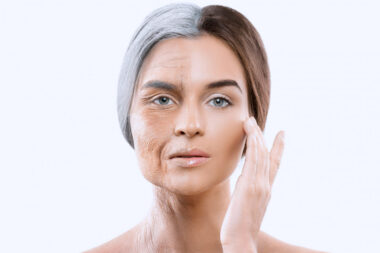Our hormones play an intricate role in our body, facilitating everything from temperature regulation, to blood pressure, and even our stress response.
When our hormones are in balance, they keep our body healthy and functioning at its best. However, when our hormone levels become unbalanced, our health (and hair) can take a major hit.
Can a Hormonal Imbalance Cause Hair Loss?
If you are experiencing hair loss, it might be time to check out your hormones. While hair loss can have many causes, for women, hormones play a more significant role.
The more common causes of hormonal hair loss include:
- Menopause
- Thyroid disorders
- Pregnancy
- Childbirth
1. Menopause
Hair loss during menopause is caused by a drop in hormones, more specifically, progesterone and estrogen. The drops in these hormones can cause hair thinning and slow hair growth- resulting in overall hair loss and shedding.
2. Thyroid Disorders
When your thyroid does not produce the right amounts of hormones in your body you might experience hypothyroidism or hyperthyroidism. While these conditions have different symptoms, both can cause your hair texture to change and break off.
3. Postpartum
When you give birth, your estrogen and progesterone hormones suddenly drop, sometimes resulting in hair loss. You see, when you are pregnant, your hormone levels are higher which can result in thick, healthy hair.
Once you give birth, your body no longer needs those high levels of hormones and your body starts to regulate back to its normal levels. This process can cause temporary hair loss and thinning.
Also read: Tips To Help Thin Hair Look Thicker
Can You Grow Back Your Hair?
If you are experiencing hair loss from a hormonal imbalance, that doesn’t mean you are doomed forever. In fact, there are many ways you can restore your hair loss and enjoy even healthier hair than before.
1. Get your hormones in check
Before you even think about hair growth vitamins or a laser hair regrowth cap, you should connect with your health care provider to get support to level out your hormones.
While postpartum hair loss will taper off once your hormones regulate, conditions like hypothyroidism might require medication or other medical intervention to level out your hormones.
2. Live a healthy lifestyle
That whole you are what you eat statement applies here. Eating healthy foods, working out, and cutting back on drinking and smoking will allow your body the foundation it needs to help grow back your hair.
Some of the best foods for hair loss include; eggs, avocados, greens, beans, berries, and greek yogurt. Also, fitting in some daily exercise is a great way to improve blood circulation, which in turn makes your scalp pretty happy.
3. Manage your stress
Stress is another common cause of hair loss, also known as telogen effluvium. When we leave our stress levels unchecked, hair loss can typically become the outcome.
While stress relief looks different for everyone, making sure you work to manage your stress will support those #hairgoals of yours. If you don’t know where to start, some popular ways to destress include:
- Taking yoga classes
- Meditate
- Journal
- Self-care
4. Try out LLLT
LLLT is another popular option for hair loss since it is non-invasive and can be used at home. This technology uses cold laser lights to stimulate hair growth by improving circulation and oxygen delivery in your scalp.
You can expect to see results in a few months, so LLLT treatment for hair loss is a great option for hair growth at home.
5. Get a hair loss vitamin
Hair loss vitamins are another great hair growth support option, as they address nutrient deficiencies and also give your body a boost.
Most hair growth supplements include vitamins and herbs that will help support the cellular function of your hair follicles. This encourages hair growth from the inside out.
Since hair loss vitamins are a popular solution, there are plenty of options on the market that can meet your lifestyle needs like vegan, gummy, and organic options.
Final Words
At the end of the day, hair loss sucks and it takes time to grow it back. While the journey can at times be frustrating- just remember to stay consistent and keep working towards your goals. Hair loss requires a reliable routine that is steady, so just stay positive and keep moving forward.
About the Author:
Tiffany Fuller is a writer with a passion for holistic wellness, working for illumiflow, a revolutionary brand dedicated to helping you fight hair loss.
This article is published by our independent team of health and wellness pundits that publish original and informative content to empower readers to take charge of their health and embark on a physically, mentally, and emotionally balanced lifestyle.







































Hair loss is linked to creatine supplements. Numerous studies have also shown that over-supplementation or prolonged use of nutrients like Vitamins A & E and Selenium can result in hair loss.